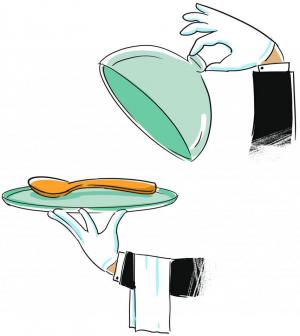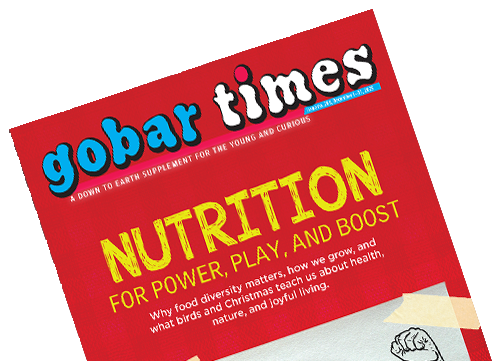
We have evolved over crores of years and invented plastic items and materials along the way to make our lives easier. Some of these have become a threat to life on Earth today

Wetlands purify water through natural processes where aquatic plants act as bio-filters. Plants absorb phosphates and nitrates from the water and roots help to put back oxygen into the water. Constructed wetlands are a cost-effective method of treating wastewater and polluted water bodies. These are low cost solutions and can be easily made or replicated.

Can leaves be a better alternative to plastic plates that are non-biodegradable? Read on to find what lesson the character learnt in the story!

We may be a speck in the universe, but the universe is nothing without the sum of the specks. When Dr Rajagopalan Vasudevan, a chemistry professor at Thiagarajar College of Engineering, Madurai, invented a technology to use plastic waste in making roads, he did not know how impactful his lab experiment will become...

Can we control the ongoing water crisis all by ourselves? It's not about whose responsibility it is, but what we are doing about it. “When water became a commodity, I lost my freedom. More importantly, it put a financial burden on those who couldn’t afford to buy it. Today, water companies sell drinking water and advertise it being rich in minerals and full of vitamins. Big corporates such as soda companies have been buying rivers for industrial purpose and farmers have no water to irrigate their fields. As the rivers dry up, animals also start wandering and enter villages in search of water, with a threat of …

It is estimated that over 40 billion plastic kitchen utensils—including 14–18 billion plastic spoons—are produced every year. Given our low rate of reusing and recycling them, most of this cutlery ends up in landfill sites, or worse, in oceans and lakes! Here, they contaminate the land and soil for at least 450 years—the time plastic takes to degrade. Simply put, this is a recipe for disaster! But there are edible alternatives, read on...

I am waiting for my death. Death? Not exactly. My days are numbered as the ink is about to finish. Soon, I will be discarded and thrown into a dust bin. One more in the countless old ones with finished inks, discarded and to be replaced by a new one.

Government Girls Senior Secondary School, Sikkim is leading the way to reduce plastic waste

